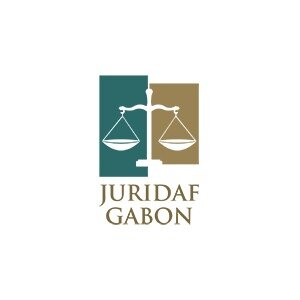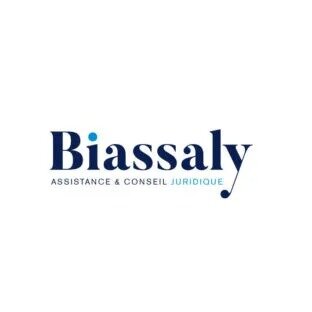Best Renewable & Alternative Energy Lawyers in Gabon
Share your needs with us, get contacted by law firms.
Free. Takes 2 min.
Or refine your search by selecting a city:
List of the best lawyers in Gabon
About Renewable & Alternative Energy Law in Gabon
Gabon, located in Central Africa, is rich in natural resources and has made significant efforts toward diversifying its energy mix. Traditionally dependent on hydroelectricity and fossil fuels, Gabon is now focusing more on renewable and alternative energy sources, including solar, wind, and biomass. The country seeks to expand energy access, reduce carbon emissions, and harness its abundant natural potential. Renewable and alternative energy law in Gabon refers to the legal frameworks, policies, and regulations designed to promote, manage, and supervise the development, financing, and operation of renewable energy projects.
Why You May Need a Lawyer
Seeking legal advice in the renewable and alternative energy sector can be crucial for a variety of reasons. Common situations include:
- Acquiring permits and licenses for renewable energy projects
- Navigating land use and environmental impact assessments
- Drafting and reviewing contracts with government bodies, suppliers, or local communities
- Advising on regulatory compliance and tariff structures
- Handling disputes arising from project development, investment, or implementation
- Securing intellectual property rights for technological innovations
- Facilitating foreign investment in the energy sector
- Ensuring proper structuring or financing of joint ventures and partnerships
- Negotiating power purchase agreements with utility companies
A lawyer with experience in Gabon’s renewable and alternative energy laws can help prevent costly mistakes and ensure project success.
Local Laws Overview
Gabon has adopted several policies and legal measures to stimulate growth and investment in renewable and alternative energy. Understanding these laws is vital for investors, developers, and anyone involved in the sector:
- National Energy Law: Gabon's energy sector is primarily regulated by its general energy law, which covers renewable projects, independent power production, grid access, and the role of government and private actors.
- Investment and Incentive Frameworks: Gabon offers incentives for renewable energy investments, such as tax relief, customs exemptions, and support for public-private partnerships. The National Agency for Renewable Energies and Energy Efficiency (Agence Nationale des Energies Renouvelables et de l’Efficacité Energétique) oversees project approvals and incentives.
- Land Use and Environmental Regulations: Environmental assessments are mandatory for most energy projects. Laws also regulate land ownership, community rights, and compensation if land is used for energy development.
- Electricity Market Regulation: The energy sector is partially liberalized, allowing independent power producers to operate and sell energy to the national grid under specific conditions set by the regulator.
- International Agreements: Gabon is party to several international climate change agreements, which influence its domestic laws and support the transition to clean energy.
Compliance with these and other specific rules is crucial for launching or investing in renewable energy projects in Gabon.
Frequently Asked Questions
What are the main sources of renewable energy in Gabon?
The primary sources include hydropower, solar energy, biomass (such as wood and agricultural residues), and, to a lesser extent, wind energy.
Is private investment allowed in Gabon’s renewable energy sector?
Yes, private and foreign investment is encouraged and regulated. Gabon has frameworks in place to facilitate public-private partnerships for energy projects.
What government body oversees renewable energy projects?
The National Agency for Renewable Energies and Energy Efficiency (ANEREE) is responsible for supervising, promoting, and regulating renewable energy projects.
Are there any tax incentives for renewable energy investments?
Gabon provides several incentives, including tax holidays, reduced customs duties, and other benefits to attract investment in renewable energy.
How do I obtain permits for a renewable energy project?
Permits are generally obtained through ANEREE and may require environmental impact assessments, land use approvals, and compliance with local regulations.
What is a Power Purchase Agreement (PPA)?
A Power Purchase Agreement is a contract between an electricity generator and a power purchaser, typically the national utility. It outlines the terms for the sale and purchase of electricity over a specified period.
Do renewable energy projects require environmental impact assessments?
Yes, most projects require an environmental impact assessment to ensure compliance with national environmental regulations and to mitigate negative impacts.
Can small-scale producers connect to the national grid?
Under certain regulatory conditions, independent producers may feed electricity into the grid. The terms are set by Gabon’s energy regulator.
What are the main risks in developing a renewable energy project?
Risks include regulatory delays, land and community issues, technical challenges, financing difficulties, and possible disputes over contracts or resource access.
How can a lawyer assist in renewable energy projects?
A lawyer can help you navigate permits, regulatory compliance, contract drafting, negotiations, dispute resolution, investment structuring, and protecting your interests at every stage of project development.
Additional Resources
Several resources and organizations can provide updated information and assistance:
- National Agency for Renewable Energies and Energy Efficiency (ANEREE): The primary government body for regulatory matters, project applications, and incentives.
- Ministry of Water and Energy: Oversees national policies, energy planning, and strategy.
- Gabonese Investment Promotion Agency: Provides guidance and information for local and foreign investors interested in renewable energy.
- Environmental Protection Agencies: Offer information on environmental regulations and required impact assessments for energy projects.
- Energy and Legal Associations: Public and private sector groups that connect stakeholders and provide sector updates.
Next Steps
If you are planning to invest in, develop, or seek legal clarity on renewable and alternative energy in Gabon, consider these steps:
- Gather detailed project or investment information and objectives.
- Identify potential land, regulatory, or environmental issues early in the process.
- Consult with a qualified lawyer or law firm experienced in Gabonese energy law, investment frameworks, and environmental compliance.
- Reach out to relevant government agencies to clarify current legislative requirements and incentives.
- Prepare the necessary documentation for permits, environmental studies, and any relevant contract negotiations.
- Stay informed about policy changes or new programs that might impact your project or investment.
Securing experienced legal counsel ensures that your renewable and alternative energy ventures in Gabon move forward smoothly and in compliance with all necessary laws.
Lawzana helps you find the best lawyers and law firms in Gabon through a curated and pre-screened list of qualified legal professionals. Our platform offers rankings and detailed profiles of attorneys and law firms, allowing you to compare based on practice areas, including Renewable & Alternative Energy, experience, and client feedback.
Each profile includes a description of the firm's areas of practice, client reviews, team members and partners, year of establishment, spoken languages, office locations, contact information, social media presence, and any published articles or resources. Most firms on our platform speak English and are experienced in both local and international legal matters.
Get a quote from top-rated law firms in Gabon — quickly, securely, and without unnecessary hassle.
Disclaimer:
The information provided on this page is for general informational purposes only and does not constitute legal advice. While we strive to ensure the accuracy and relevance of the content, legal information may change over time, and interpretations of the law can vary. You should always consult with a qualified legal professional for advice specific to your situation.
We disclaim all liability for actions taken or not taken based on the content of this page. If you believe any information is incorrect or outdated, please contact us, and we will review and update it where appropriate.
Browse renewable & alternative energy law firms by city in Gabon
Refine your search by selecting a city.










